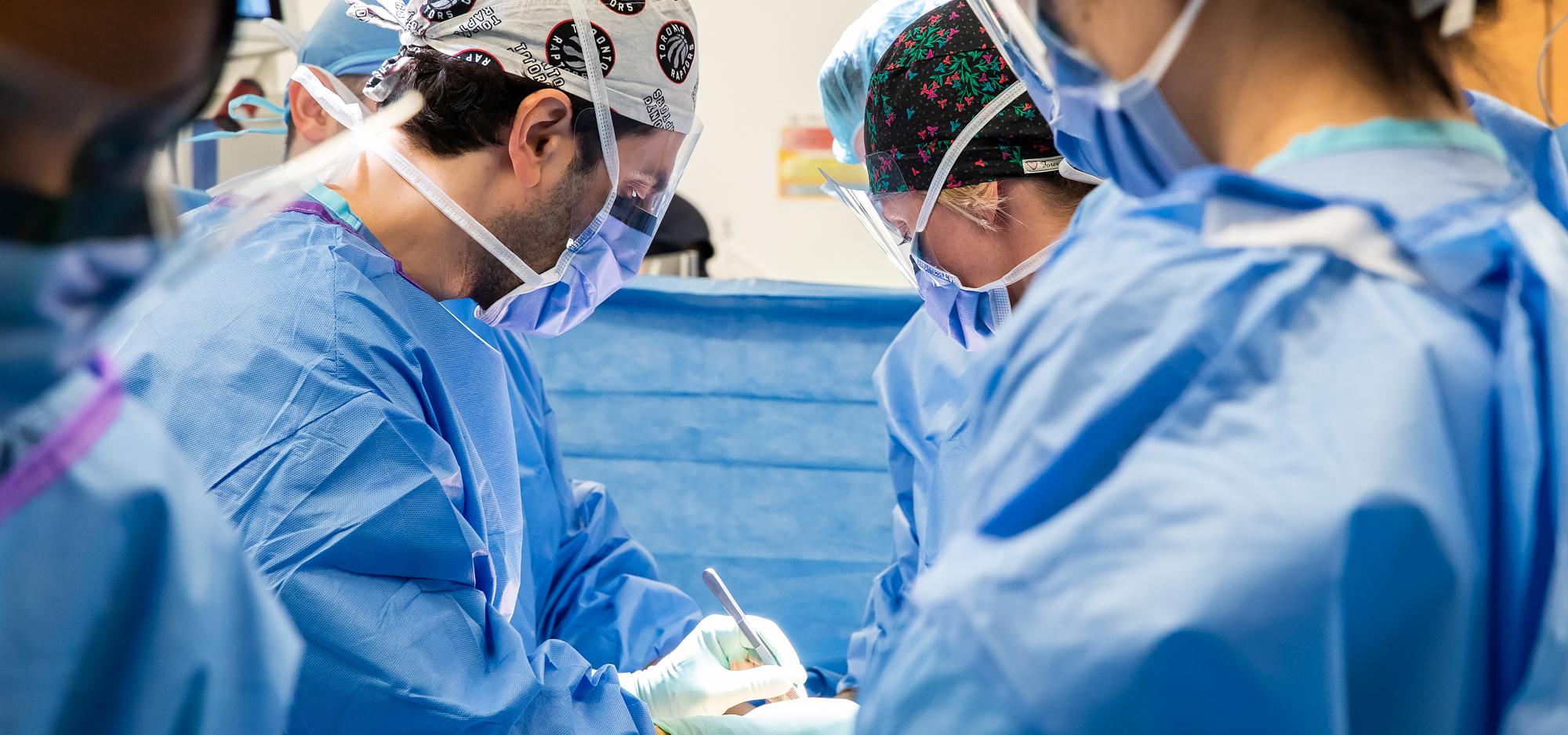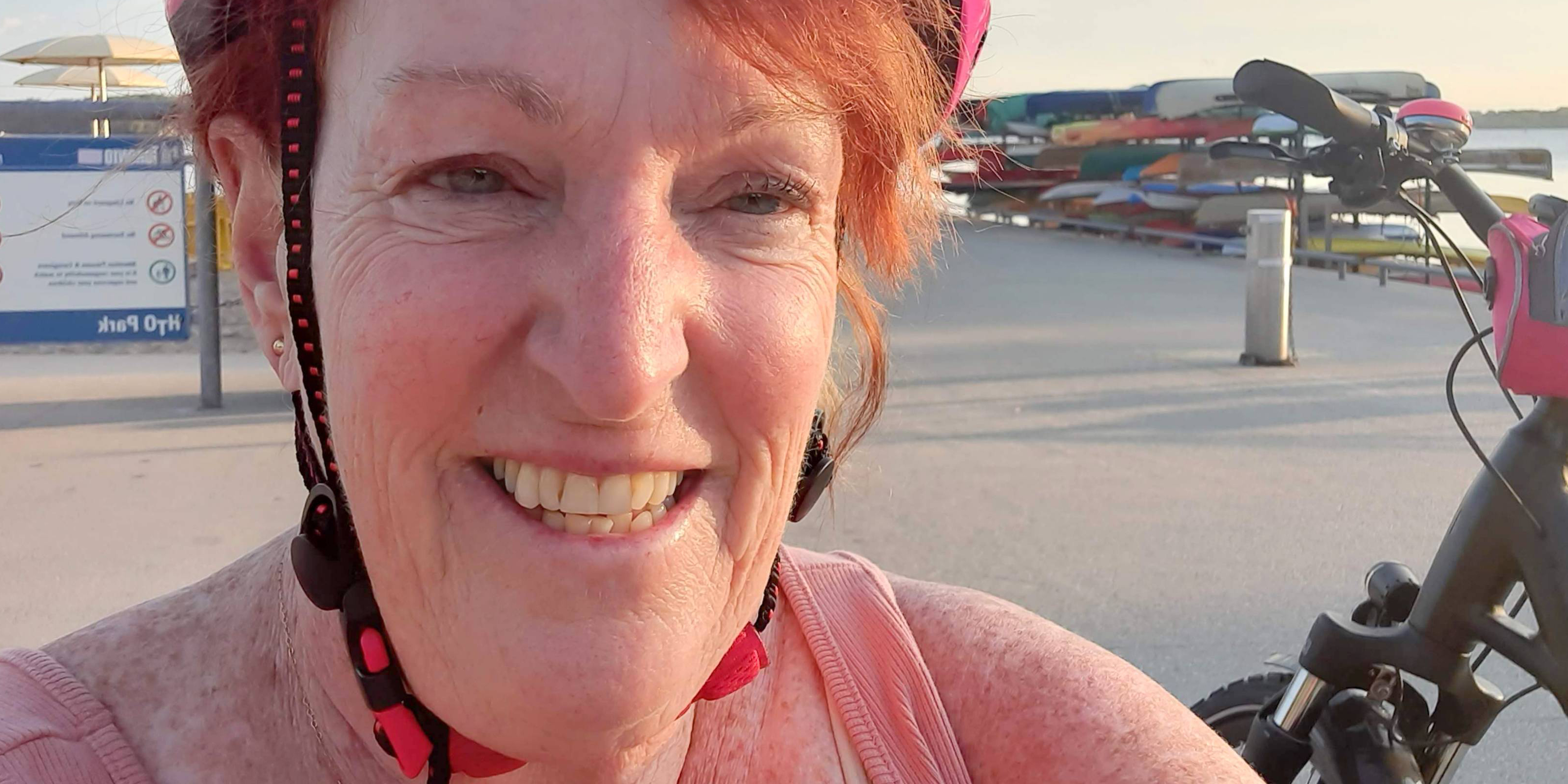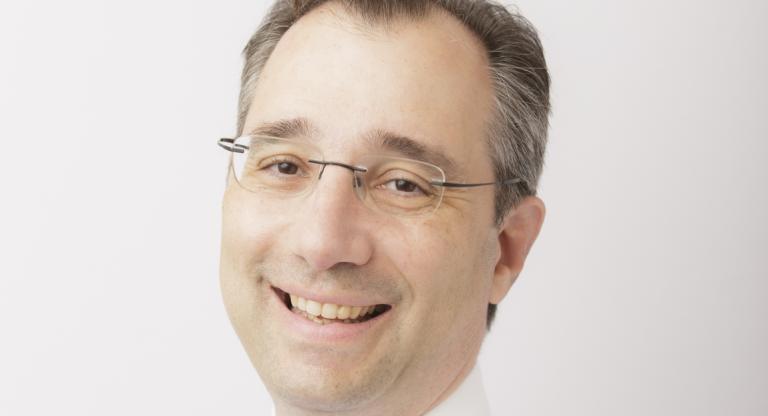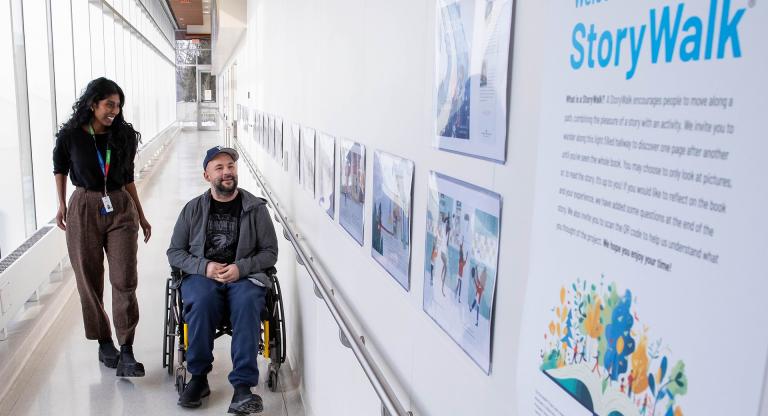Innovation supports consistent pain management for patients

Early in the pandemic, Mount Sinai Hospital’s perioperative team began planning ways to support patients awaiting knee replacement surgery by developing strategies to deliver care with limited hospital resources.
When surgical activity could increase, Dr. Jesse Wolfstadt, orthopedic surgeon and Dr. Josh Gleicher, anesthesiologist, implemented an outpatient nerve block catheter program for the newly adapted hybrid outpatient and inpatient joint replacement program.
The outpatient nerve block catheter program aimed at enhancing pain relief, uses the new ISAFE (Inter-fascial space between Sartorius muscle and Femoral artery) technique. This analgesia therapy helps support patients’ early mobility and quality of recovery.
Patients like retired music teacher Jodi who cycles 40 kilometers most days. In October 2020, while recovering from a cycling accident, her care team discovered arthritis in her left knee.
“My knee was in a brace for six weeks. My goal was to get back on my bike,” says Jodi. She was making progress but walking was difficult. Her left knee buckled unpredictably. After further examination, she was recommended for knee surgery.
“Jodi was referred to us at Mount Sinai Hospital in June 2021. We determined she would be a good potential candidate for primary knee replacement surgery with the goal to return home later the same day,” explains Dr. Jesse Wolfstadt.
To help patients, Dr. Gleicher and the regional anesthesia team developed the ISAFE technique. Nerve block medication is delivered through a catheter traditionally inserted into the adductor canal near the thigh. The canal located within the adductor muscle is a narrow passageway which can prove challenging during catheter placement. “We have successfully targeted a more open area with ISAFE to further secure catheter placement. The result has been more consistent pain medication delivery for patients without the risk of the catheter becoming dislodged. Patients have told us it’s helped with recovery,” says Dr. Gleicher.

“For me, the whole experience was really good,” notes Jodi. “They wanted you walking before you go home. I wore the catheter, attached securely to my thigh. The benefits were wonderful. I had no pain, no nausea and was able to sleep. I was wearing it throughout the weekend. I was not hindered by pain and did not need assistance to move. I was relatively independent.”
Drs. Gleicher, Wolfstadt and the Sinai Health regional anesthesia team are the first to report continuous nerve block catheters used for patients discharged on the same-day of their knee replacement surgery. Published in the Journal of Clinical Anesthesia findings show of 16 patients who had this catheter placed, over half required no opioid pain medication at home. All patients had consistent pain management, no catheter dislodgement or difficulties with removal and reported a comfortable recovery with greater ease of mobility.












